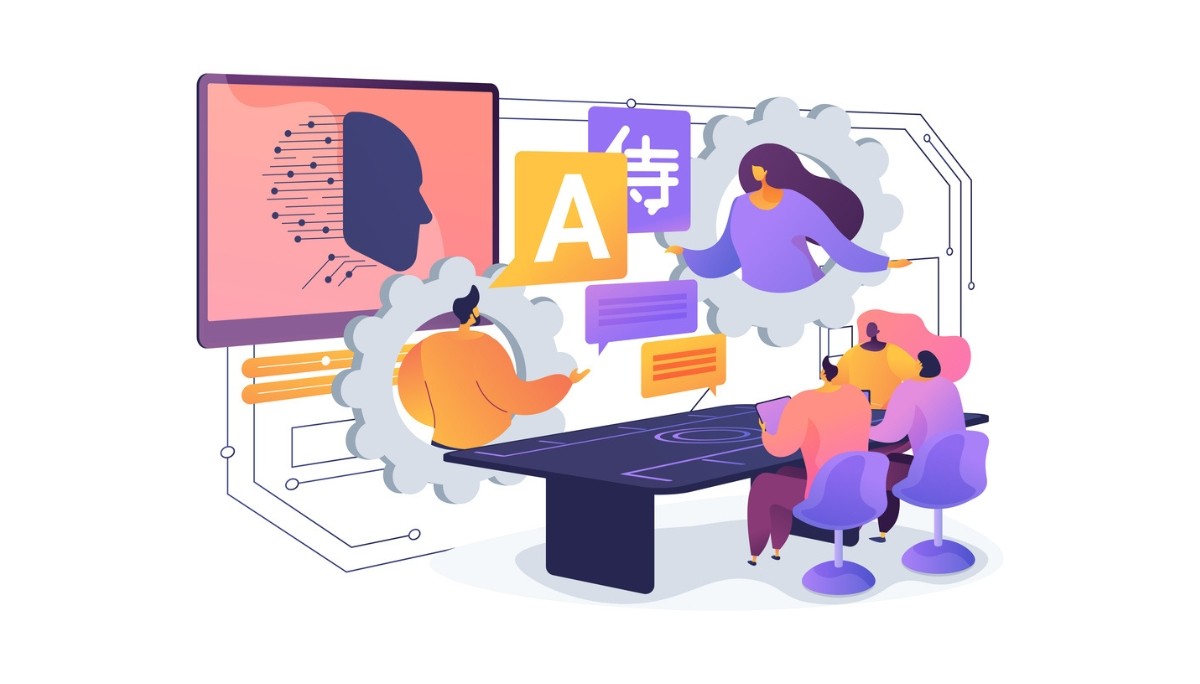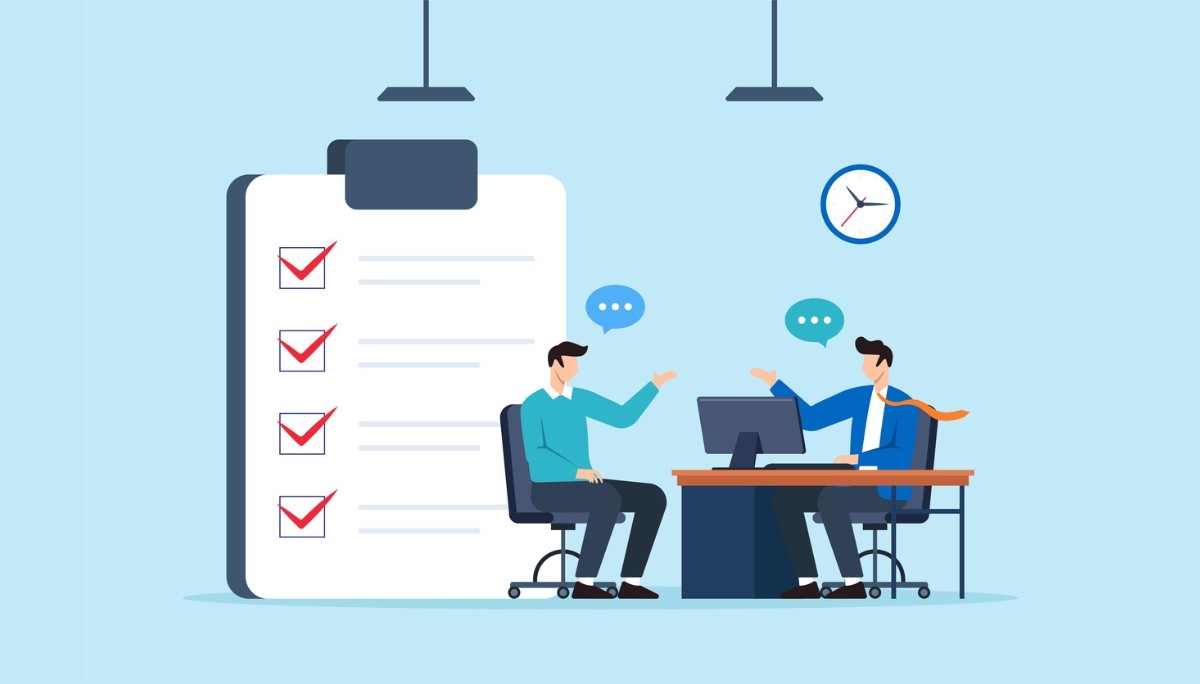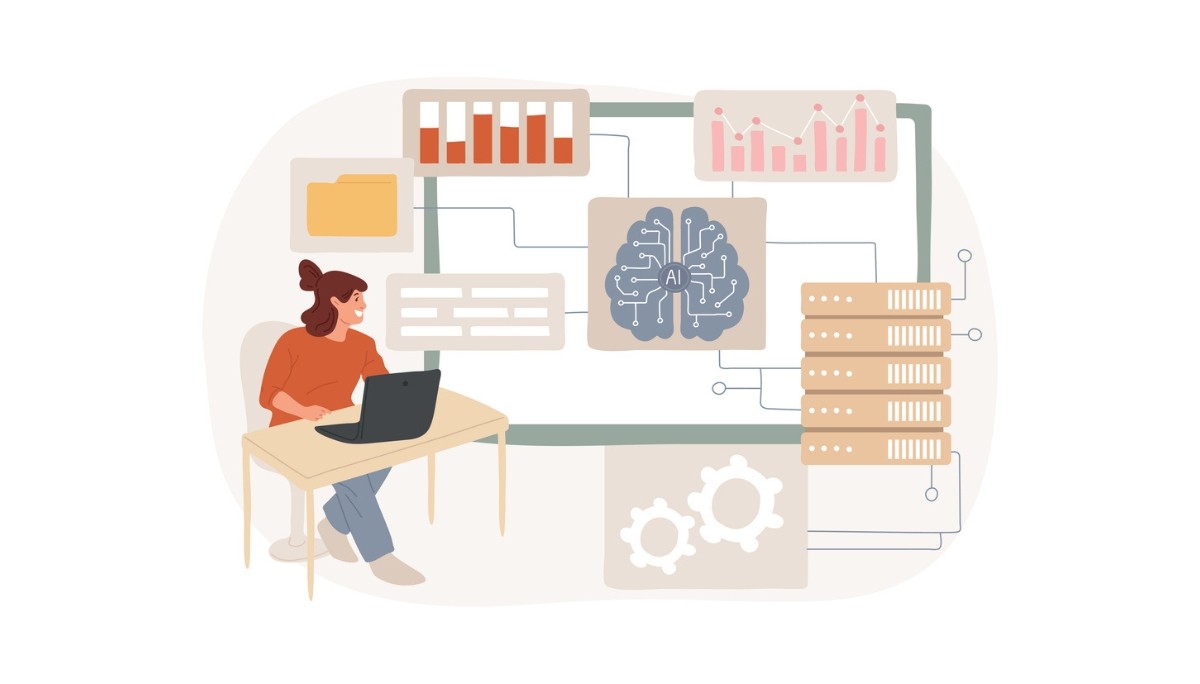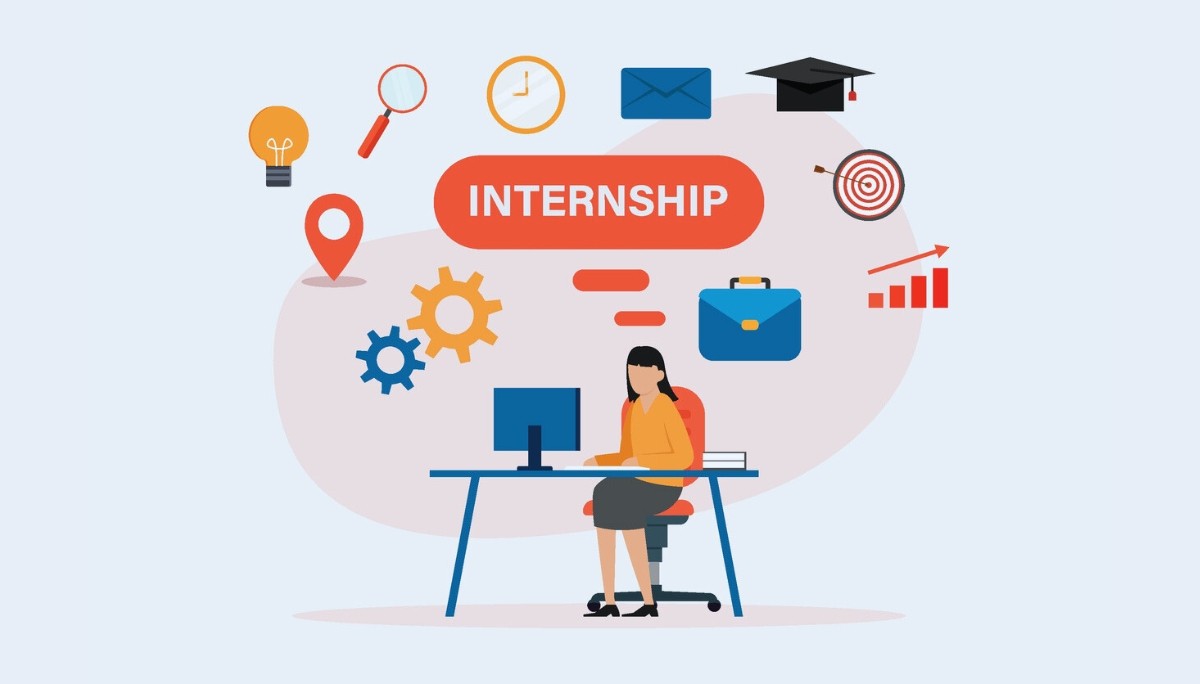Top Technical Machine Learning Engineer Interview Questions
By
Samantha Cox
•
Jun 18, 2025
If you’re getting ready for a technical interview, you’re likely wondering what questions will come your way and how to best prepare. This guide provides a comprehensive overview of common technical interview questions and strategies to help you succeed. From coding challenges to system design and machine learning concepts, we’ll cover everything you need to know.
Key Takeaways
Technical interviews for machine learning engineers assess coding skills, system design knowledge, and problem-solving abilities across various phases, including initial screenings and on-site assessments.
Preparation for technical interviews should focus on coding challenges, system design inquiries, and mathematical principles relevant to machine learning, emphasizing real-world application and understanding of key concepts.
Effective communication during interviews, including articulating problem-solving processes and asking clarifying questions, is essential for demonstrating technical acumen and engaging with interviewers.
Understanding Technical Interviews

Technical interviews are designed to evaluate a candidate’s relevant technical skills, problem-solving capabilities, and communication style. For many candidates, the technical interview rounds can be the most intimidating part of the hiring process. These interviews help employers determine if candidates will thrive in the roles they are applying for by assessing their understanding of software and its functionality.
The stages of an interview typically include:
Initial screening
A behavioral interview
A technical interview
An on-site interview
During the technical interview phase, candidates showcase their coding skills using an integrated development environment (IDE) in the technical portion.
The on-site interview provides a comprehensive assessment of a candidate’s technical and communication skills through live coding exercises. Understanding what to expect and preparing in advance can ease the stress of technical interviews.
Common Technical Interview Questions

Technical interviews are designed to assess technical knowledge, problem-solving ability, critical thinking, and readiness for the role. Candidates should expect tech interview questions that cover various technical domains and assess problem-solving capabilities. These questions typically cover tools, processes, and hypothetical situations.
Developing technical skills through training or tutorials can help you prepare for these questions.
Coding Challenges
Coding challenges are a staple of technical interviews. They often include a variety of coding problems such as algorithmic challenges, data structure manipulations, and problem-solving puzzles. Common coding challenges include tasks like validating strings, merging sorted linked lists, and finding elements in arrays. In machine learning interviews, candidates may need to implement algorithms related to classification and regression tasks.
Common different programming languages in technical interviews include specific programming languages:
Java
C++
JavaScript
Candidates should be prepared to use coding language-specific syntax to solve coding problems effectively. When practicing coding challenges, it’s beneficial to analyze time and space complexity to optimize solutions. Starting with simpler coding problems and progressively tackling more difficult challenges can build confidence and skills.
System Design Questions
System design questions evaluate a candidate’s competence in large-scale system design and architecture. These questions often focus on trade-offs, scalability, reliability, and performance of complex systems. System architecture questions delve into the overall structure of a system, including networking, distributed systems, cloud computing, security, and scalability.
Candidates need to demonstrate their ability to create scalable and maintainable architectures. These questions assess a candidate’s understanding of how to design systems that can handle increased loads without compromising performance.
Effective preparation involves studying architectural patterns and understanding how to integrate different components for seamless data processing.
Data Structures and Algorithms
Data structures are essential for organizing and managing data efficiently, and understanding them is crucial in technical interviews. Common types of data structures include:
Stacks
Queues
Linked lists
Trees
Each serves different purposes in data management. Interviews often assess candidates’ knowledge of various algorithms, including:
Sorting algorithms
Searching algorithms
Dynamic programming techniques.
Articulating problem-solving strategies during an interview demonstrates a candidate’s adaptability. By explaining how they solve problems and the reasoning behind their approach, candidates can showcase their deep understanding of data structures and algorithms.
Machine Learning Engineer Interview Questions
Machine learning engineer interviews often feature questions that assess both theoretical knowledge and practical applications in the field. Recruiters frequently ask about the practical applications of machine learning concepts to gauge candidates’ real-world skills.
Understanding these questions and preparing effectively can make a significant difference in a candidate’s understanding and sample answers.
Key Concepts in Machine Learning
Common technical questions focus on concepts like supervised vs. unsupervised learning, overfitting, and feature selection. Supervised learning involves training a model on labeled data, while unsupervised learning deals with unlabeled data, trying to identify patterns. Understanding these fundamental concepts is essential for anyone aspiring to become a machine learning engineer.
Overfitting occurs when a model learns noise from the training data too well, leading to poor generalization on new data. Candidates should be able to explain how they would prevent overfitting and improve model generalization. These questions not only test theoretical knowledge but also the ability to apply these concepts in practical scenarios.
Machine Learning System Design
System design questions in ML interviews often assess your coding skills, understanding of ML algorithms, and system design principles. Effective ML system design requires knowledge of how to integrate different components for seamless data processing. Candidates should focus on understanding data workflows to effectively manage the flow of information in systems.
Model scalability is crucial for ensuring that systems can handle increased loads without compromising performance. Familiarity with architectural patterns and concepts of integration with existing systems is essential in ML system design interviews.
Preparing for these questions involves practicing design problems, getting feedback from peers, and studying existing ML systems.
Math and Statistics Questions
Math is critical in ML interviews, with questions frequently covering topics like linear algebra, probability, and statistical analysis. Proficiency in statistics is essential, with potential questions covering probability distributions and hypothesis testing. Candidates should be prepared to demonstrate their understanding of these concepts during interviews.
Understanding the concepts of bias and variance is vital for modeling and improving prediction accuracy in machine learning. By being able to explain these concepts clearly, candidates can showcase their depth of knowledge and their ability to apply mathematical principles to real-world problems.
Preparing for Technical Interviews

Effective preparation can significantly reduce interview anxiety and boost confidence. Preparation involves not only reviewing technical knowledge but also honing soft skills and practicing problem-solving.
By understanding what to expect and how to prepare, candidates can make the interview process much easier.
Reviewing Job Descriptions
Reviewing job descriptions is crucial as it helps job seekers identify the essential skills and qualifications for the desired role. Analyzing job postings allows candidates to tailor their preparation to meet employer expectations, thereby increasing their chances of success in interviews.
Candidates can find out about the questions to expect in a technical interview by asking the recruiter or hiring manager or by reviewing the job description. Candidates should focus on relevant programming languages, frameworks, technical skills, and tools mentioned in the job description to understand job requirements for technical interviews. This helps in preparing for specific job requirements and showcasing relevant skills.
Practicing Mock Interviews
Mock interviews can help identify areas of weakness that need improvement before the actual interview. They simulate real interview conditions, allowing candidates to practice under pressure and get accustomed to the interview style.
While answering brainteasers or coding questions in mock interviews, it’s essential to talk through your reasoning process and explain the steps. The combination of identifying weaknesses, simulating conditions, and effective communication skills contributes to improved performance in actual interviews.
Continuous Learning and Skill Development
Engaging in online coding platforms can sharpen your technical skills through practical challenges related to tech projects. Demonstrating ongoing learning and adaptability can significantly enhance a candidate’s profile during interviews. Mentioning familiarity with tools and technologies, even if not specifically required, can demonstrate adaptability.
Discussing preferred tools for specific tasks can indicate practical experience and informed preferences. Continuing education through various means is essential for keeping up with changes in technology and industry standards.
Showcasing Your Problem-Solving Skills

Candidates can showcase their problem-solving skills by:
Discussing previous roles and projects relevant to the position.
Presenting case studies that allow them to articulate their decision-making process, unlike other candidates.
Highlighting the impact of their contributions on outcomes, including the candidate’s communication skills.
Understanding that demonstrating problem-solving skills is crucial for success in technical interviews.
Explaining Your Thought Process
Candidates should articulate not just the solution but the reasoning behind their approach during technical interviews. Thinking out loud while solving problems helps interviewers follow the candidate’s logic and decision-making process.
Understanding the company culture can guide how you tailor your responses during interviews. This approach helps interviewers see the depth of your understanding and your logical reasoning skills.
Highlighting Relevant Tools and Technologies
Continuous integration allows for early detection of defects and problems within the codebase. Interviewers often ask about tools related to software, programs, and technologies relevant to the tasks at hand.
If you’re unfamiliar with a specific tool during an interview, consider the following approaches:
Mention related tools you are familiar with.
Discuss any limitations of your favorite programming language to show awareness and depth of knowledge.
Share your preferred product management system and opinions on its scalability to illustrate your practical knowledge.
Asking Clarifying Questions
Asking for clarification helps candidates fully understand the problem statement before attempting to provide a solution. Proactive communication is essential in technical interviews to ensure both the interviewer and candidate are on the same page. If you find yourself uncertain about certain aspects of the problem during the interview, it’s crucial to ask for clarification.
Demonstrating that you are engaged and interested in solving the problem by asking questions can positively influence the interviewer’s perception. This approach shows your commitment to understanding the problem thoroughly and delivering an accurate solution.
Real-World Problem-Solving in Interviews
Interviewers evaluate candidates’ ability to break down complex problems into manageable parts, which demonstrates structured thinking. Companies often assess candidates’ problem-solving skills through practical scenarios that reflect real-world challenges during a job interview, including common interview question formats.
This approach ensures that candidates can apply their candidate’s technical knowledge and technical expertise effectively in real-world situations.
Scenario-Based Questions
Scenario-based interview questions include:
Present hypothetical situations to assess candidates’ responses and situational questions related to problem-solving skills.
Focus on evaluating candidates’ analytical abilities.
Assess decision-making abilities during hypothetical scenarios.
Scenario-based questions require candidates to demonstrate their analytical thinking by resolving hypothetical issues. Companies often present scenarios requiring candidates to devise solutions for issues like data quality or model performance. Asking targeted questions during interviews can highlight a candidate’s analytical skills and attention to detail.
Case Studies and Projects
Companies often utilize case studies or hypothetical scenarios to examine candidates’ abilities to solve practical problems using ML techniques. Case studies are often used in technical interviews to evaluate candidates’ abilities to navigate complex scenarios.
Candidates may be assessed on their ability to apply specific ML techniques in case study scenarios, showcasing their practical skills. Effectively communicating past projects and experiences helps candidates demonstrate their problem-solving capabilities in real contexts.
Utilizing Fonzi for AI Job Preparation
Fonzi offers a unique platform that connects skilled engineers with top-tier AI and tech companies through a curated talent marketplace. This platform is designed to help artificial intelligence engineers, machine learning researchers, infrastructure engineers, and large language model specialists navigate modern hiring.
Responsible AI in Hiring
Fonzi’s AI tools aim to enhance fairness in hiring by automating processes that traditionally introduce bias. Fonzi uses AI to minimize bias in the recruitment process, ensuring a fairer evaluation of candidates. By standardizing candidate evaluations, Fonzi reduces biases in the hiring process and allows recruiters to focus on strategic decision-making.
Fonzi incorporates bias audits to help hiring teams:
Identify and correct biases in candidate evaluations
Reduce bias
Protect candidate experience
Speed up the hiring timeline
This approach reassures candidates that Fonzi is committed to responsible and fair hiring practices.
Match Day Process
Fonzi’s Match Day is designed to connect candidates with top-tier companies effectively and efficiently. The process involves matching candidates with companies based on their skills and aspirations.
Candidates benefit from Match Day by receiving tailored opportunities that align with their professional goals. Overall, Match Day serves as a high-signal mechanism that enhances candidates’ visibility to potential employers. This structured 48-hour event allows candidates to connect seamlessly with prospective employers during the hiring process.
Top Technical Machine Learning Engineer Interview Questions

Understanding the most common technical interview questions for ML engineers can significantly impact hiring decisions. The following table lists and explains some of the top questions you might encounter:
Question | Explanation |
What are the most common technical interview questions for ML engineers? | Coding problems, system design inquiries, and theoretical concepts related to ML are common categories of questions. |
How should I prepare for a machine learning system design interview? | Familiarize yourself with common design problems, avoid overcomplicating designs, and focus on operational considerations. |
What coding problems are typically asked in ML engineer interviews? | Algorithmic challenges, data manipulation, and matrix operations tailored to ML applications. |
Are math and statistics questions part of ML interviews? | Yes, questions on topics like probability, distributions, and linear algebra frequently arise. |
How do companies test real-world problem-solving in ML interviews? | Through practical scenarios and case studies that reflect real-world challenges. |
What are the most common technical interview questions for ML engineers?
Common categories of questions for ML engineers can include:
Coding problems, which often test programming skills and problem-solving abilities.
System design inquiries, focusing on architectural decisions for ML systems.
Theoretical concepts related to machine learning.
Being well-prepared for these common questions is crucial for success in securing a role as a machine learning engineer. Understanding these questions and effectively preparing can make a significant difference in a candidate’s performance.
How should I prepare for a machine learning system design interview?
Understanding machine learning system design interviews is crucial, as they can differ significantly from other types of technical interviews. Candidates should familiarize themselves with common machine learning system design problems and frameworks to effectively prepare.
Awareness of common pitfalls, such as overcomplicating designs or neglecting operational considerations, can enhance interview performance. Key takeaways for preparation include practicing design questions, getting feedback from peers, and studying existing machine learning systems.
What coding problems are typically asked in ML engineer interviews?
Coding problems often revolve around algorithmic challenges, data manipulation, and matrix operations tailored to machine learning applications. Examples include implementing classification algorithms, optimizing model performance through writing code tasks, and working with large datasets.
Understanding and practicing these types of problems can help candidates perform better in interviews. It’s essential to be proficient in relevant programming languages and to understand the underlying principles of these coding challenges.
Are math and statistics questions part of ML interviews?
Math and statistics are critical components of machine learning, and candidates should prepare for questions in these areas during interviews. These questions frequently arise in machine learning interviews, reflecting their importance in the field.
Examples of math and statistics questions include topics on probability, distributions, and linear algebra. Demonstrating proficiency in these areas can significantly boost a candidate’s chances of success.
How do companies test real-world problem-solving in ML interviews?
One of the frequently asked questions in interviews is: ‘How do companies test real-world problem-solving in ML interviews?’. Companies often use practical scenarios and case studies to assess candidates’ problem-solving abilities. These methods help interviewers evaluate how well candidates can apply their technical knowledge to solve real-world problems.
Preparing for these types of questions involves practicing with similar scenarios and understanding the practical applications of machine learning concepts.
Summary
Navigating the technical interview process for a machine learning engineer role can be challenging, but with thorough preparation, it becomes manageable. Understanding the structure of technical interviews, familiarizing yourself with common questions, and honing your problem-solving skills are crucial steps. Reviewing job descriptions, practicing mock interviews, and engaging in continuous learning will further enhance your readiness.
Remember, showcasing your thought process, highlighting relevant tools and technologies, and asking clarifying questions can make a significant difference. Utilize platforms like Fonzi to connect with top-tier companies and benefit from responsible AI-driven hiring processes. With these strategies, you can confidently approach your technical interviews and secure your desired role.




